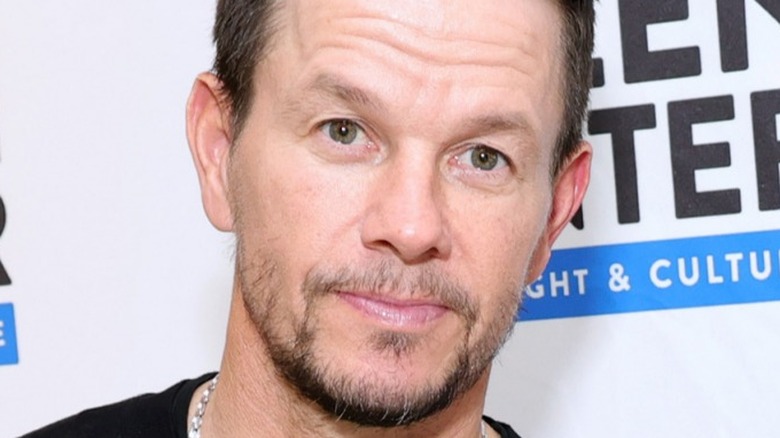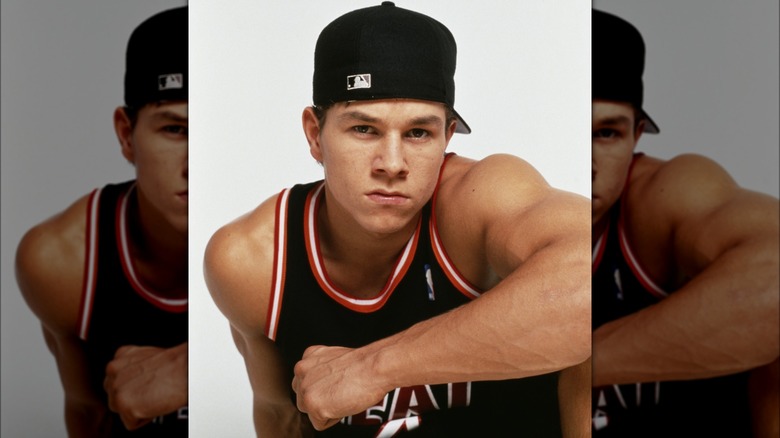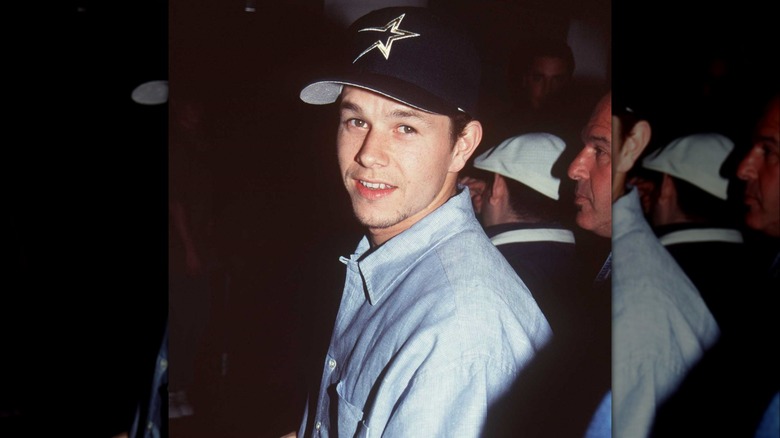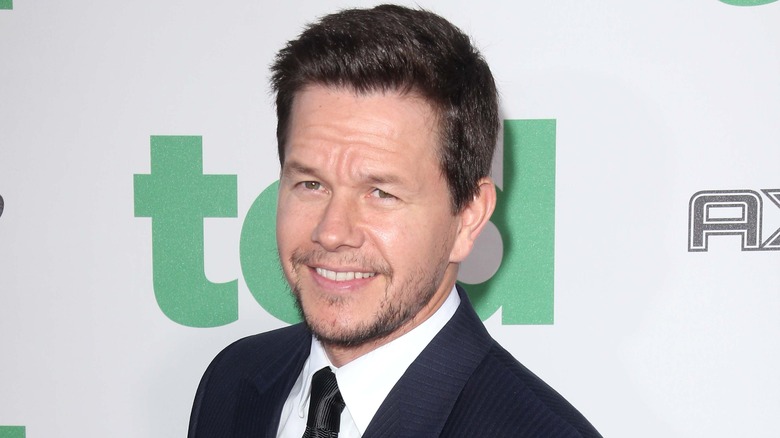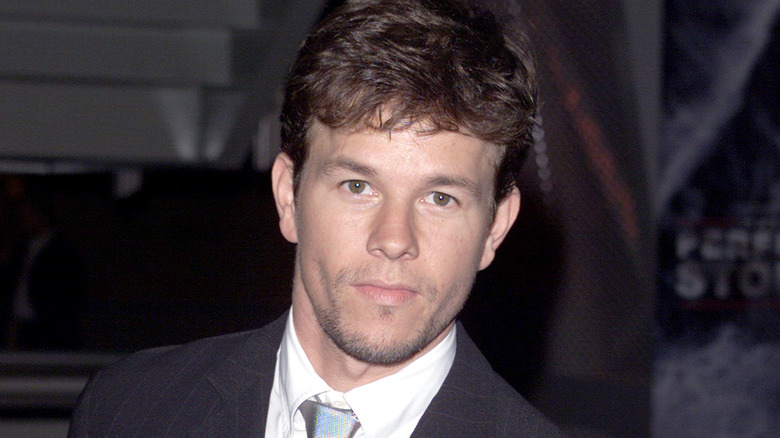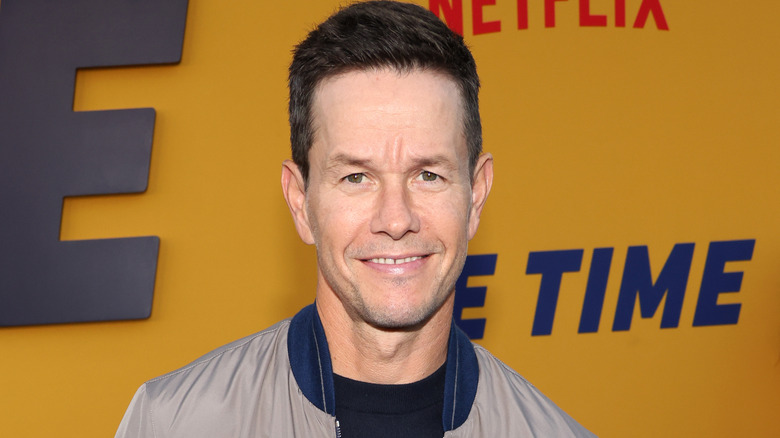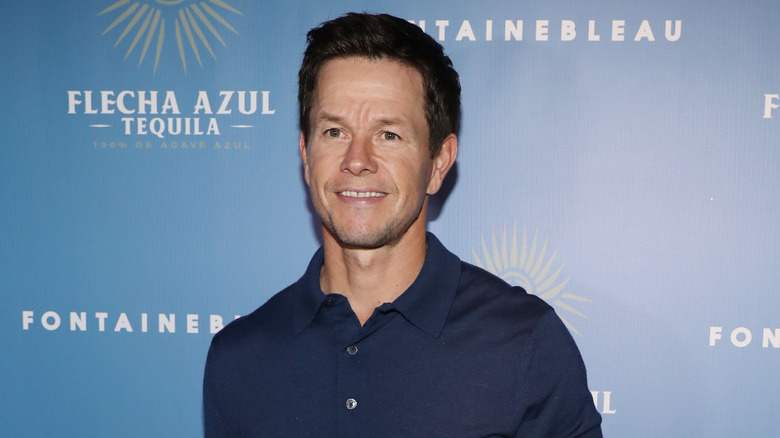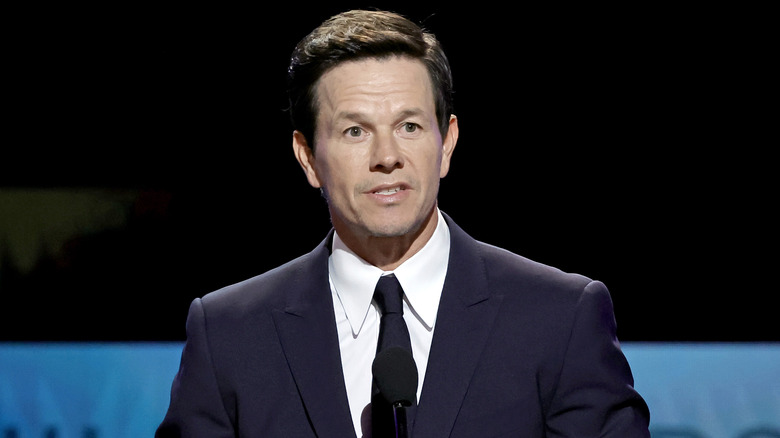Why So Many People Dislike Mark Wahlberg
The following article includes references to addiction, violence, hate crimes, racism, and homophobia.
In recent years, Hollywood has worked hard to begin purging itself of the harmful racist, homophobic, misogynistic, and abusive attitudes some of its members have been known to hold for years. From the sexual abuse convictions of producer Harvey Weinstein and musician R. Kelly, to celebs calling out dangerous views like former Present Donald Trump's refusal to condemn white supremacy, Tinseltown has taken positive steps toward becoming a place that seems more welcoming and open to folks of all walks of life. But just because the industry has started holding its insiders accountable for their actions, that doesn't mean everyone who arguably ought to have faced the music following less-than-decent behavior has. Take, for example, Mark Wahlberg.
Those unfamiliar with the "Ted" actor's history might be unaware of the litany of scandals and crimes that have marred his past. But Wahlberg's admitted missteps are still well-known among the public (after all, he's never really tried to hide or deny them), which explains why moviegoers aren't always all that fond of him. Here, we're digging into a few of the reasons so many people seem to dislike Mark Wahlberg — from the shocking crimes of his teenage years to the seemingly shady contract dealings of more recent movie shoots. Buckle up, folks ... this is going to be one wild ride.
Mark Wahlberg's rap sheet stems back to his teens
In 1986, a 15-year-old Mark Wahlberg was hanging out at Dorchester, Massachusetts' Savin Hill Beach with some friends. After coming across a group of younger Black students who were heading back to their bus during a field trip, his crew verbally and physically attacked them with racist slurs and rocks, per The Guardian. While a nearby ambulance driver thankfully put a stop to things before the incident could escalate further, a civil rights injunction was later slapped onto Wahlberg's soon-to-be-growing rap sheet — meaning that he'd spend time behind bars should he be found guilty of a similar crime in the future.
Speaking with AP News (via The Guardian) decades later, some of the victims recalled the traumatic experience. One of the students, Kristyn Atwood, stated, "It was a hate crime. And that's exactly what should be on [Wahlberg's] record forever." Meanwhile, teacher Mary Belmonte noted, "I was really scared. My heart was beating fast. I couldn't believe it was happening. The names. The rocks. The kids chasing."
For his part, Wahlberg explained to Vanity Fair in 2011 that his actions were those of a lost, unsupported teen who spent his time drinking, using illicit substances, and skipping school to hang around with the wrong crowd — all things that led him to act violently and make decisions he wasn't proud of. If that had been the end of his racist attacks, people might have been more forgiving, given the tough circumstances of his childhood. Unfortunately, that wouldn't be the case.
If you or a loved one has experienced a hate crime, contact the VictimConnect Hotline by phone at 1-855-4-VICTIM or by chat for more information or assistance in locating services to help. If you or a loved one are in immediate danger, call 911.
If you or anyone you know needs help with addiction issues, help is available. Visit the Substance Abuse and Mental Health Services Administration website or contact SAMHSA's National Helpline at 1-800-662-HELP (4357).
He was convicted of anti-Asian hate crime
Mark Wahlberg was involved in yet another racist attack in 1988. This time, the high schooler was convicted of assault against two Vietnamese men. According to sentencing documents obtained by The Guardian, it all started when the actor used a wooden pole to knock out the first man, Thanh Lam, while yelling racial slurs. His goal? To steal the two cases of beer the man had been carrying. Minutes later, while attempting to hide from the police, Wahlberg verbally attacked and punched the second Vietnamese man, Johnny Trinh, in the eye after the individual refused to help him avoid the cops.
While initially charged with attempted murder, in the end, the then-16-year-old Wahlberg was sentenced to two years in one of Boston's notoriously tough prisons for assault, battery, and violating the aforementioned civil rights injunction — though he wound up only serving 45 days. While Lam has never publicly discussed the incident, Trinh expressed forgiveness toward Wahlberg in a 2015 interview with the Daily Mail.
For his part, Wahlberg has long claimed he was on a PCP high during the incident, and also told Vanity Fair that the repercussions he faced were a turning point in his life. However, given his criminal history of racist attacks, and this conviction in a hate crime against Asians, there was an understandable outcry of backlash when Wahlberg was chosen to present a SAG Award to the mostly Asian cast of "Everything Everywhere All at Once" in 2023.
If you or a loved one has experienced a hate crime, contact the VictimConnect Hotline by phone at 1-855-4-VICTIM or by chat for more information or assistance in locating services to help. If you or a loved one are in immediate danger, call 911.
Mark Wahlberg's critics don't always buy his expressed remorse
More than once, Mark Wahlberg has publicly stated that he's sorry for the crimes he committed as a youngster. "I made a lot of terrible mistakes and I paid for those mistakes dearly," he told The Guardian in 2020, adding that following his life-changing stint in prison, "[I] did the work. I took it upon myself to own up to my mistakes and go against the grain and not be a part of the gang anymore — to say that I was going to go and do my own thing."
However, as much as he's publicly repented, a Dorchester-based VietAid spokesperson alleged to The Hollywood Reporter in 2014 that Wahlberg had never sat down with his victims, nor the larger Asian community in his hometown, to express remorse and make things right. This apparent dichotomy has led some to feel that Wahlberg might be more worried about his Hollywood image. Perhaps making matters worse around this time was his Board of Pardons application — which sought to expunge his 1988 conviction from his record — citing one of his reasons for seeking the pardon as the ability to acquire licenses needed to run his Wahlburgers restaurants.
In response, the Asian American advocacy group 18 Million Rising questioned, "Why should someone who has done nothing to support his victims or atone for his crimes get a pardon?" While Wahlberg ultimately revoked his petition amid the backlash in 2016, he revealed that the situation allowed him to finally apologize to one of the victims in person.
The actor's history of violence reportedly continued
While Mark Wahlberg is often open about the steps he's taken to improve himself as a person following his troubled youth, it's worth noting that he seemingly continued behaving the same way well into adulthood. At least twice in the early '90s — when the Boston native was in his 20s — the rapper-turned-actor was accused of assaulting others.
In 1993, Wahlberg narrowly avoided additional criminal charges stemming from an alleged incident the previous year, in which he reportedly kicked another man named Robert D. Crehan so hard he broke his jaw while one of the star's friends held Crehan down. According to AP News, the apparent squabble began after the victim allegedly made racist comments about a member of the actor's entourage. Ultimately, the men settled out of court, which led to all charges against Wahlberg being dropped before the trial began.
A year later, the artist known as Marky Mark found himself involved in an admitted brawl, this time with members of Madonna's inner circle. The fight took place at a Los Angeles party, and "The Fighter" actor wound up breaking the nose of an unnamed Maverick Records exec, as Wahlberg recounted to ShortList decades later. There have long been rumors that everything started with Wahlberg making a homophobic comment, though he denied this gay-bashing allegation in a subsequent interview with The Advocate. Wahlberg further claimed that the "Vogue" hitmaker called the police, making efforts to have him blacklisted in Hollywood. But eventually, the whole thing seemed to have just blown over, as he was soon cast in "Renaissance Man."
Mark Wahlberg's alleged anti-LGBTQ+ attitude
While it's unclear whether Mark Wahlberg was actually guilty of making homophobic comments back in 1994, it wasn't the only time the actor was accused of being less than supportive of the LGBTQ+ community. For example, Us Weekly once reported that he was one of several A-list actors to turn down one of the lead roles in "Brokeback Mountain" — the acclaimed 2005 film's central love story was ultimately portrayed, of course, by Jake Gyllenhaal and Heath Ledger.
"I met with [director] Ang Lee. ... I read 15 pages of the script and got a little creeped out. It was very graphic, descriptive," Wahlberg explained in an interview back in 2007. "... It's just not my deal." But that's not to say he'll turn down every role he's offered in an LGBTQ+ project. Wahlberg played the conservative father of a bullied gay teen son in 2020's "Good Joe Bell," much to the chagrin of several members of the community, allies, and critics alike.
As the Daily Beast pointed out of Wahlberg's controversial history, "There are still those critics ... who find it obtuse to cast an actor with that past in a movie that memorializes a gay teen's suicide with a message of inclusivity and acceptance." Meanwhile, the New York Post found Wahlberg's casting in what the writer dubbed "Oscar bait" particularly distasteful, hypocritical, and seemingly opportunistic, rhetorically arguing, "Why does the celebrity industrial complex have such a blind spot when it comes to Mark Wahlberg?"
His seemingly shady contract dealings
Unfortunately, the optics surrounding "Good Joe Bell" wouldn't be the first time Mark Wahlberg was accused of taking advantage of a showbiz situation to further his career. A few years prior to this, he was working on "All the Money in the World," a biographical crime drama about the kidnapping of John Paul Getty III. After principal photography was completed, sexual assault allegations against Kevin Spacey (who initially had a starring role in the film) began to circulate, and it was decided that the bulk of the 2017 movie should be re-shot with Christopher Plummer assuming Spacey's old role.
Initially, it was reported that the project's other big stars — Wahlberg and Michelle Williams — had agreed to do the eight-day reshoots for free, as they were seemingly eager to distance themselves and the project from Spacey. But then, USA Today revealed that Wahlberg had quietly accepted a $1.5 million check. In comparison, Williams pocketed under $1,000 for her additional work. Understandably, fans were outraged. Wahlberg, some felt, had allegedly taken advantage of the situation to line his own pockets, without telling Williams or moviegoers the full truth.
Following the swift backlash, Wahlberg announced (via Deadline), "I 100% support the fight for fair pay and I'm donating the $1.5 million to the Time's Up Legal Defense Fund in Michelle Williams' name."
Has Mark Wahlberg promoted unrealistic body standards?
Mark Wahlberg — who's known to have a rather intense diet and exercise routine — has sometimes been accused of helping Hollywood promote unrealistic body standards. Now, to be fair — and as is the case with many actors — his physical composition changes frequently to fit the need of different roles: sometimes, he'll be on the leaner side, and other times, he'll add a ton of muscle to look bulkier.
But in 2018, an imprisoned steroid dealer named Richard Rodriguez named Wahlberg among his alleged celebrity clients, claiming the actor had actually been achieving these drastic results via illegal steroids Rodriguez sold him. However, Wahlberg swiftly claimed this was all a load of hooey. "All natural, baby," he said of his physique to TMZ, before flexing his bicep for the camera. "That's hard work." Wahlberg also slammed the use of steroids, saying, "Why put yourself and your health at risk when you can work hard and be a good example?"
The Drug Enforcement Agency opted not to investigate the allegation, but many folks have pointed out that Marky Mark's level of fitness isn't attainable for most, suggesting that the pressure actors face to look a certain way on the big screen has contributed to a culture of negative body perception among boys and men. While Wahlberg is open about the strict regimen he adheres to, Professor John Brewer told BBC News that it was "the high end of extreme," claiming it wouldn't be sustainable in the long-term or even necessary in terms of maintaining health and wellness.

